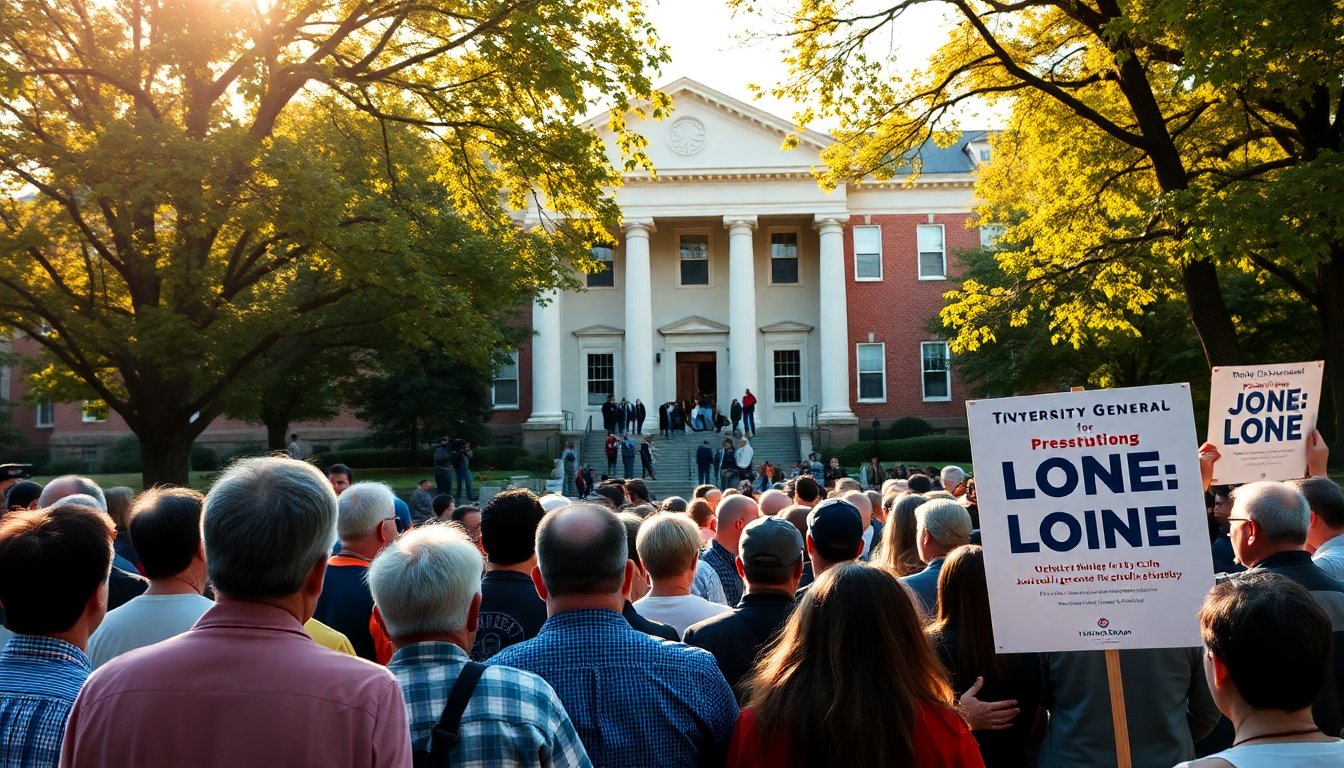Table of Contents
As Virginia prepares for the upcoming attorney general debate at the University of Richmond, the political atmosphere is charged with controversy. The focus is on Jay Jones, a former state delegate, who is embroiled in a scandal involving violent text messages suggesting harm to a Republican lawmaker and disparaging remarks about his children. This incident has attracted widespread local attention and caught the interest of national figures, including President Donald Trump, who criticized the Democratic Party’s response.
A recent poll from Christopher Newport University, conducted before the scandal was made public, indicated that Jones held a six-point lead over his Republican opponent, Jason Miyares. However, unfolding events appear to be reshaping the race dynamics, as anecdotal feedback suggests a narrowing contest that may favor Miyares.
The political fallout
The implications of Jones’ scandal have rippled through the Virginia political landscape, where the Republican Party has seized the opportunity. Winsome Earle-Sears, the Republican candidate for governor, has openly questioned Democratic leadership, particularly Abigail Spanberger, regarding whether Jones should withdraw from the race. Spanberger’s reluctance to demand Jones’ exit has led to dissatisfaction among some voters in the Shenandoah Valley, who expected a stronger stance against violent rhetoric.
Responses from Democratic leaders
While some Democratic leaders have opted for silence or vague support of Jones, others have publicly defended his right to remain in the race. Don Scott Jr., the current Speaker of the Virginia House, drew parallels between Jones’ situation and past remarks made by Trump regarding Liz Cheney, suggesting a history of aggressive language within the Republican Party. Additionally, L. Louise Lucas and Mamie Locke released a statement asserting that keeping Miyares in office would be detrimental for Virginia.
Shifting polls and voter sentiment
As the political landscape evolves, polling trends indicate that Miyares may be closing the gap with Jones. This shift could significantly impact the Democratic ticket, which historically enjoyed more substantial leads in previous elections. Earle-Sears is maintaining strong support among Republican voters, similar to Glenn Youngkin, and is facing a tight race against Spanberger, who continues to lead in recent surveys.
The political climate in Virginia has changed considerably over the past decade. Once a Republican stronghold, the state’s demographics and voter preferences have shifted toward the Democratic Party. Candidates like Corey Stewart and Barbara Comstock were once prominent figures, but their influence has diminished in the face of progressive movements.
Historical context and future implications
The political upheaval in Virginia echoes past electoral cycles. In the 2021 election, Youngkin’s success was driven by parental rights issues surrounding transgender athletes in schools, a topic Earle-Sears continues to champion. The challenge for Democrats now lies in addressing the fallout from Jones’ comments, which may hinder voter enthusiasm across the ticket.
Moreover, Jones’ messages, which included graphic fantasies of violence against GOP leaders and derogatory remarks about their children, have drawn bipartisan condemnation. Despite calls for Jones to withdraw from the race, prominent Democratic figures have largely refrained from taking decisive actions, potentially alienating moderate voters.
The race to watch
As the election approaches, the landscape in Virginia remains unpredictable. The repercussions of Jay Jones’ scandal could impact the Democratic Party, affecting voter turnout and overall election outcomes. With the Republican Party rallying behind Miyares and Earle-Sears, the stage is set for a dramatic shift in Virginia’s political scene. As voters consider their options, the resolution of this controversy will be crucial in determining the fate of candidates on both sides of the aisle.


